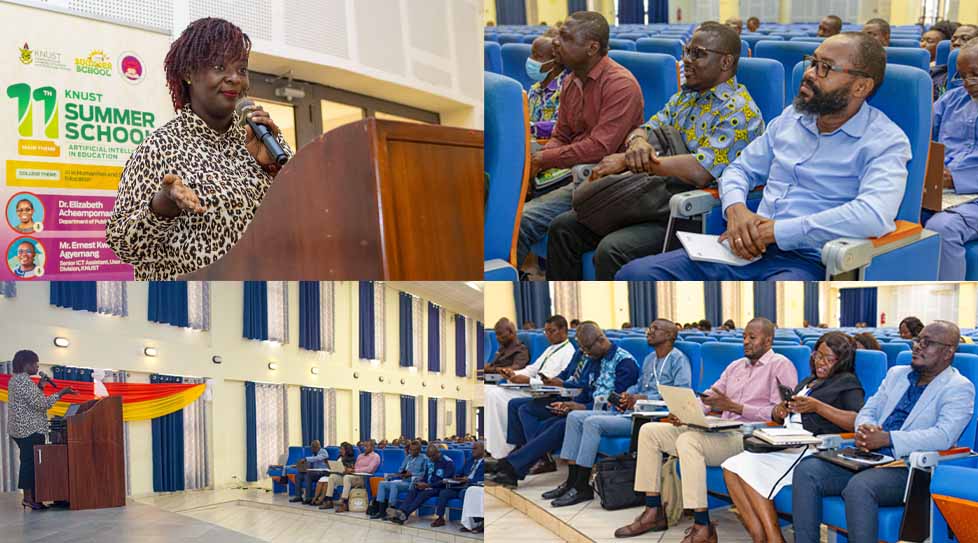Professor Kabila Abass, Dean of the Faculty of Social Sciences at the Kwame Nkrumah University of Science and Technology (KNUST), Kumasi, has underscored the vital role of the Humanities and Social Sciences in providing ethical direction, cultural grounding, and policy insight in the development and use of Artificial Intelligence (AI).
“While Artificial Intelligence offers incredible speed and computational power, the Humanities and Social Sciences remain essential in ensuring that AI serves humanity with responsibility, inclusivity, and equity. It is the Humanities and Social Sciences that must provide ethical direction, cultural grounding, policy insight, and a sense of human identity,” he said.
He made the remarks at the College-level session of the 11th KNUST Summer School 2025, held under the sub-theme “AI in Humanities and Social Sciences Education.”
Speaking on behalf of the Provost, Professor Charles Ofosu Marfo, Acting Provost of the College, Professor Abass described the theme as both timely and relevant.
“AI is transforming not only how we learn and teach but also how we conduct research and engage with the world. We have reached a point where we must unlearn and relearn to enhance our profession and remain relevant and current,” he said.
The annual Summer School has evolved into a flagship intellectual forum, a dynamic platform where transformative ideas are shared, challenged, and refined. Professor Abass expressed optimism that this year’s programme would inspire new ideas and actions to position the College, the University, and Ghana at the forefront of AI-driven transformation.
Ms. Audrey Bertha Nartey, an Intel AI Certified Master Coach from Coral Reef Innovation Africa, led participants through a step-by-step guide on responsible and ethical AI use, demonstrating how to integrate AI into teaching and learning.
She urged participants not to fear AI because of misconceptions but to embrace it as the world advances technologically.
“We must ensure that in guiding students to use AI the right way, we encourage them to use it responsibly,” she said, adding that “AI is not the enemy of learning, fear is.”
Mr. Ernest K. Agyemang, Senior ICT Assistant at the University Information Technology Services (UITS), also introduced participants to AI tools that can accelerate research, teaching, and learning.
He emphasised that “participants should pay close attention to prompt engineering, as it is the most important part of AI.

















